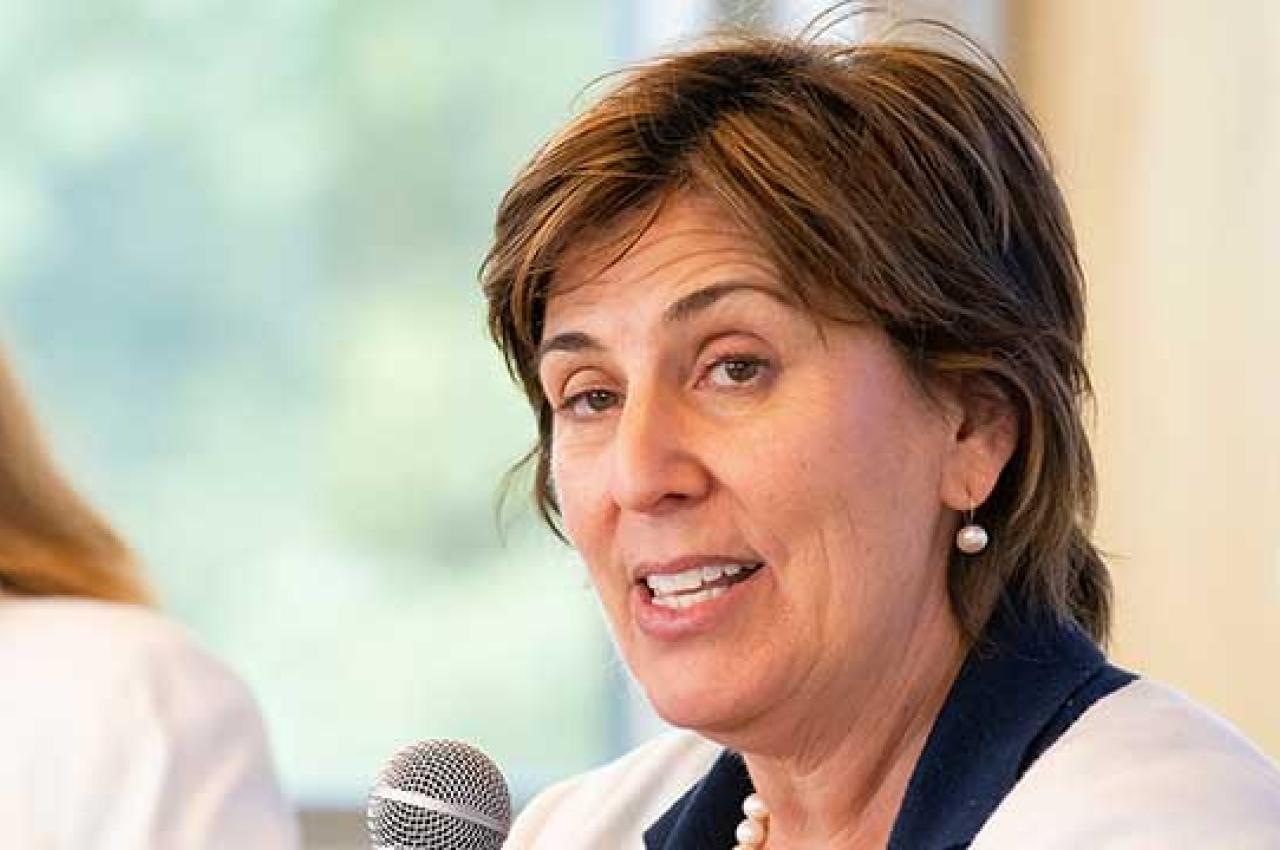New Approach to Alternative Energy Sources for College Campuses
Supporting affordable low-carbon energy solutions for large entities like colleges and universities was the focus of a gathering held at Tufts on July 17. Among those participating were Secretary of the Executive Office of Energy and Environmental Affairs Rebecca Tepper, Medford Mayor Breanna Lungo-Koehn, and Tufts University President Sunil Kumar.
The focus was on new legislation in the Energy Affordability, Independence, and Innovation Act proposed by Massachusetts Governor Maura Healey. The legislation’s provisions to advance geothermal energy and utility connection reform would help both universities and all ratepayers save on their energy bills, while also supporting local housing affordability, said its proponents.
Many colleges and universities across the state are exploring geothermal loops, but face challenges in financing the upfront costs and operating the systems. Geothermal loops bring heat from underground in cooler weather, and, conversely, act as heat sinks in warmer weather, yielding cooler buildings. The loops are a very efficient form of heating and cooling technology, and well-suited to large campuses, hospitals, industrial parks, and housing developments.
The new legislation would allow gas companies to own and operate geothermal loops for individual large customers, such as universities and hospitals. Customers could pay for the geothermal loops over time, without subsidies from other ratepayers. Using geothermal loops also would reduce demand on the grid and gas system.
Tufts hosted the convening at Joyce Cumming Center on its Medford/Somerville campus. Also present were representatives from MIT, UMass Lowell, nonprofit climate solutions incubator HEET, and nonprofit energy-buying consortium PowerOptions.
“As some of our state’s largest employers and energy users, Massachusetts colleges and universities have been on the frontlines of energy innovation, but current law is costing them,” said Tepper. “Allowing large institutions like Tufts to work with their local utility to build geothermal heating and cooling, as well as connect to the grid efficiently, will take significant strain off the grid. This means lower bills for Tufts and all ratepayers who will not need to subsidize additional energy and infrastructure.”
“The need for climate action is urgent and colleges and universities want to lead by example,” said Dano Weisbord, chief sustainability officer and executive director of campus planning at Tufts. “To do so, we need modern laws and regulatory frameworks that foster cost-effective implementation, and we need access to capital that will allow us to continue to dedicate our resources to researchers who are devising climate solutions and developing the next generation of leaders.”
“The legislation would require electric utilities to provide flexible interconnection solutions to reduce customer costs and timelines for interconnection, at no cost to other customers,” said Lungo-Koehn. “This would have the added benefit of allowing new development—including new dorms and residence halls—to interconnect faster, getting new housing online and reducing demand for limited affordable housing supply.
Latest Tufts Now
- I Protected My Children from Our Holocaust History. But Then They Grew UpIn Serbia’s capital, my daughter and I learned side by side about my father’s wartime experience—and our family’s heartbreak
- In Alaska, an Engineering Student Unlocks the Power of StoriesHaniye Safarpour listens when people talk about life with, and without, water
- The Unending War in UkraineDespite more than three years of brutal conflict, Ukrainians are still mostly unified in fighting off Russian invaders, says political scientist
- Seed Oils Aren’t the Problem—How We Consume Them IsNutrition experts separate fact from fiction on plant-based oils, also known as seed oils, what products to choose, and why you might pick oil over butter or tallow
- What Mamdani’s Victory Says About Engaging Gen Z VotersHis campaign drew a surge of new voters, including young people. Will the youth vote help shape the 2026 midterms, too?
- TB Bacteria Play Possum to Evade VaccinesGenetic study reveals how Mycobacterium tuberculosis survives in vaccinated or previously infected hosts













